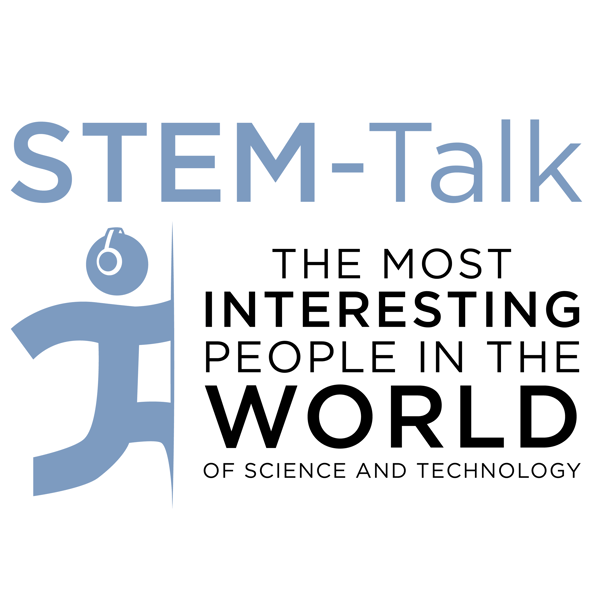Episode 183: Michael Schmidt on the challenges of building a space-faring civilization
STEM-Talk
Dawn Kernagis and Ken Ford
4.6 • 694 Ratings
🗓️ 24 June 2025
⏱️ 95 minutes
🧾️ Download transcript
Summary
Transcript
Click on a timestamp to play from that location
| 0:00.0 | Welcome to STEM Talk. |
| 0:01.0 | Stem Talk. |
| 0:02.0 | Stem Talk. |
| 0:03.0 | Stem Talk. |
| 0:04.0 | Stem Talk, where we introduce you to fascinating people who passionately inhabit the scientific and technical frontiers of our society. |
| 0:15.0 | Hi, I'm your host, Don Cornegas, and joining me to introduce today's podcast as a man behind the curtain, Dr. Ken Ford, |
| 0:23.2 | HMC's director and chairman of the double secret selection committee that selects all the guests who appear on STEM Talk. |
| 0:28.6 | Hi, Don, great to be here. |
| 0:30.6 | Today, we have part two of our interview with Dr. Michael Schmidt, the founder, CEO, and chief science officer of Savaris Aerospace, |
| 0:39.4 | a company focused on assessments and solutions applied to humans in space and extreme environments |
| 0:45.5 | on Earth. So in part one of our interview, we talked about Michael's work in pioneering the field |
| 0:50.4 | of precision medicine and how he's using it to improve the cognitive and physical performance of astronauts as well as MBA and NFL players and even special operations forces. |
| 1:00.0 | So in today's interview, we talked to Michael about NASA's plans to send humans to Mars and build permanent colonies on the moon and Mars. |
| 1:06.0 | We also talked to Michael about his recent book, Building a Space Faring Civilization, which addresses |
| 1:11.1 | the challenges of civilian space flight and the construction of space settlements. |
| 1:15.3 | Before we get to our interview with Michael, we have some housekeeping to take care of. First, |
| 1:20.8 | we really appreciate all of you who have subscribed to STEM Talk, and we are especially appreciative |
| 1:26.7 | of all the wonderful five-star reviews. |
| 1:29.7 | As always, the Double Secret Selection Committee has been continually and carefully reviewing |
| 1:33.8 | iTunes, Google, Stitcher, and other podcast apps for the wittiest and most lavishly praised field |
| 1:38.5 | reviews to read on STEM Talk. If you hear your review read on STEM Talk, just contact us at |
| 1:43.1 | STEMTalk at IHMC. |
... |
Please login to see the full transcript.
Disclaimer: The podcast and artwork embedded on this page are from Dawn Kernagis and Ken Ford, and are the property of its owner and not affiliated with or endorsed by Tapesearch.
Generated transcripts are the property of Dawn Kernagis and Ken Ford and are distributed freely under the Fair Use doctrine. Transcripts generated by Tapesearch are not guaranteed to be accurate.
Copyright © Tapesearch 2025.

